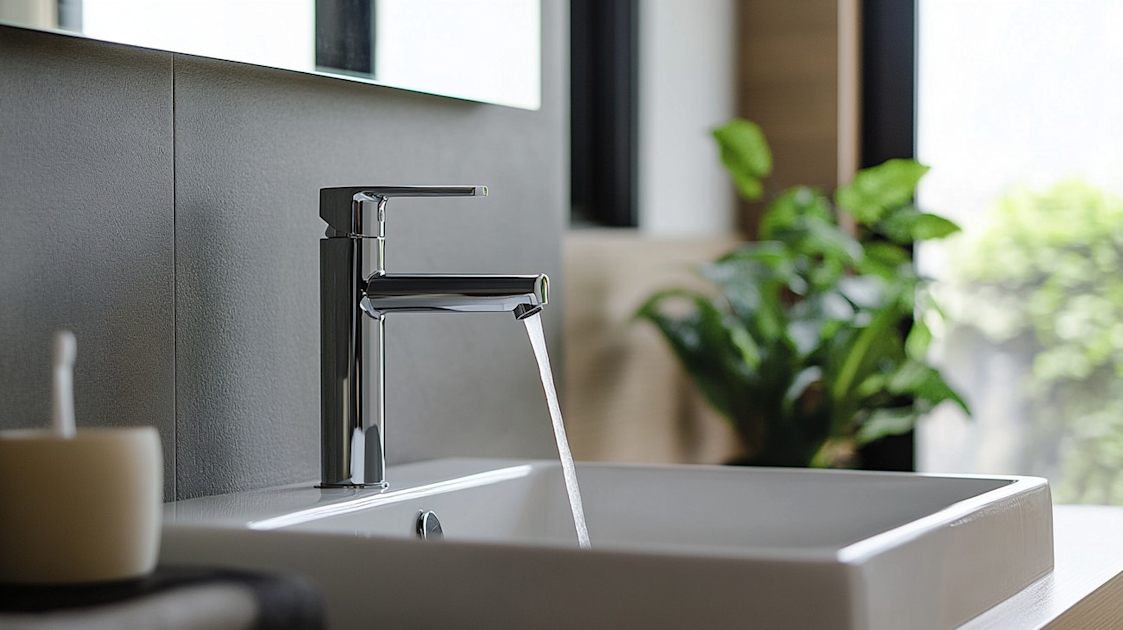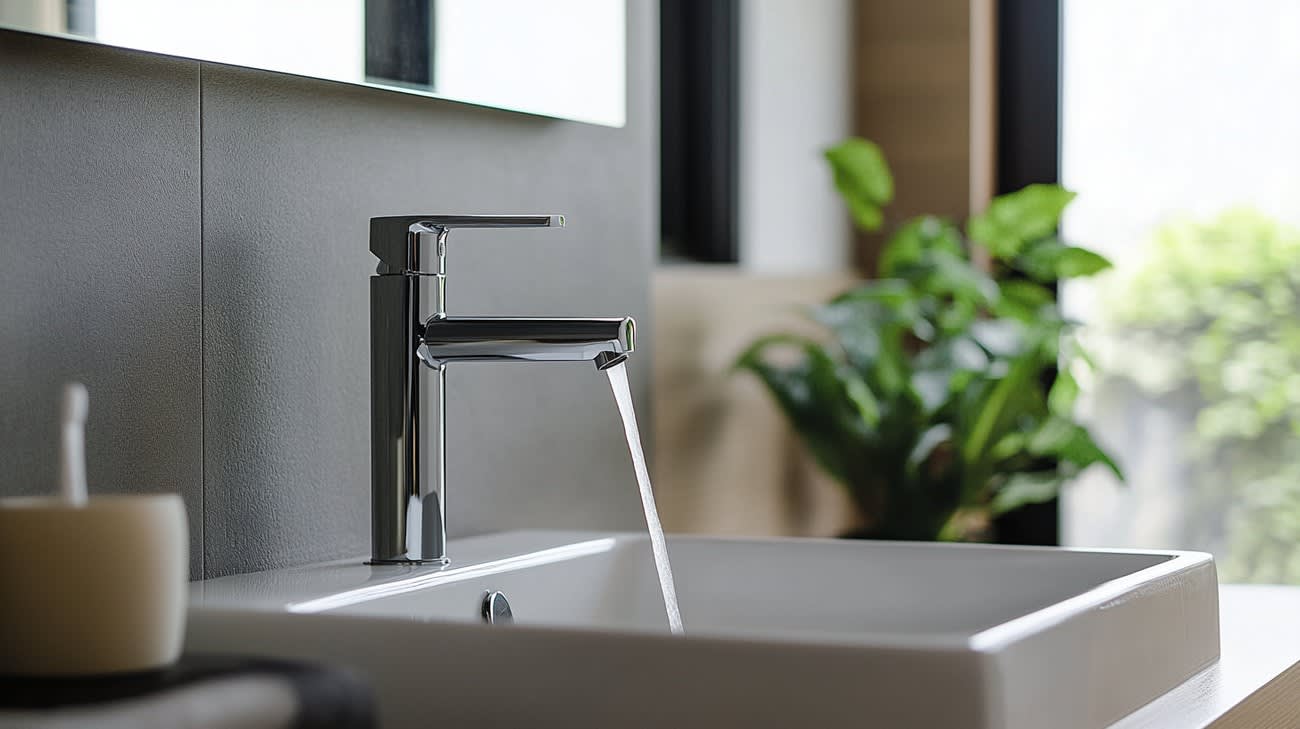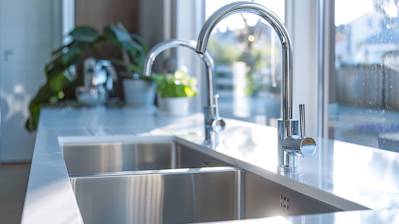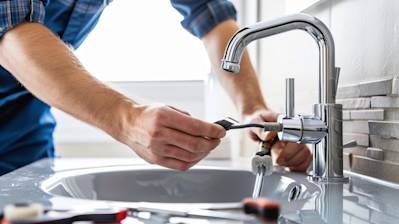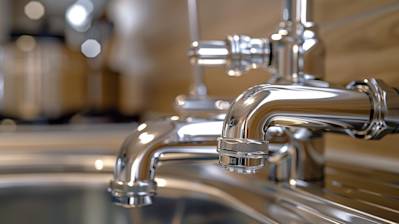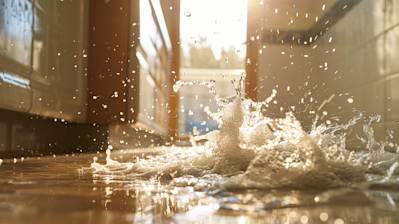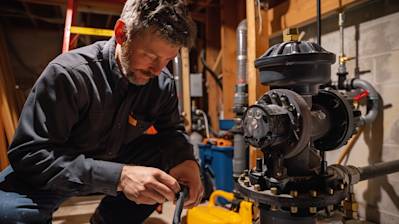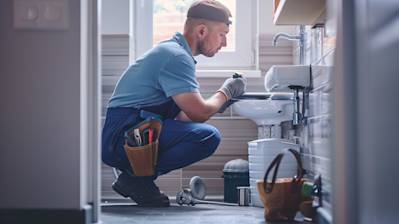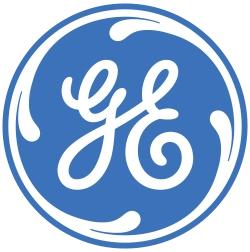Have you lost the full water pressure in your house, or noticed a significant reduction recently? Water pressure problems, especially low water pressure, can be a significant inconvenience for homeowners. This article will provide a comprehensive understanding of no water pressure issues and illustrate methods to diagnose and fix them.
Understanding No Water Pressure Problems: An Introduction
Understanding the key reasons behind no water pressure issues is the first step towards effective troubleshooting. Decreased or no water pressure might be due to multiple factors like pipeline corrosion, hidden leaks, regional supply issues, or clogged fixtures.
Causes of No Water Pressure
There are numerous reasons why your house may be experiencing low or no water pressure. Here are a few common ones:
Faulty valves: A partially closed valve can significantly reduce water pressure. Check the main water shut-off valve, which is typically near the water meter, to ensure it's fully open.
Corroded pipes: Over time, galvanised iron pipes can corrode or rust on the inside, causing reduced water pressure. If the house is older and uses these kinds of pipes, it might be time to replace them with copper or PEX pipes.
Clogged pipes or fixtures: Build-up in pipes or fixtures is another common cause of low water pressure. This could be due to sediment, lime, or other minerals frequently found in the water supply.
Water leaks: Leaks in your plumbing system might be diverting water away from the outlets, leading to low or no water pressure.
Municipal water supply problems: Sometimes, the issue might not be within the home, but with the local water supply. Regular maintenance works, or severe weather, can interrupt the supply.
Identifying and Troubleshooting No Water Pressure Issues
Once you understand what could cause the water pressure issues, the next step is identifying and troubleshooting them. Here's how:
Checking water pressure throughout the home: Test water pressure in different parts of your house including kitchen faucets, bathrooms, and outdoor spigots. If the issue is localized, the problem could be a blocked fixture which might need cleaning or replacement.
Inspecting for leaks: Look out for signs of leaks such as damp patches on floors, walls, or ceilings. If there are damp or moldy spots, contact a plumber to fix the leak.
Calling in a professional: If the troubleshooting steps do not help in restoring water pressure, it might be time to call a professional plumber. They will have the equipment to detect blockages or leaks that are not visible and can also determine if the issue lies within your property or it's a municipal water supply problem.
Three Ways to Fix No Water Pressure
If you have identified that your house has no water pressure or very low pressure, here are three solutions you can consider:
Clean or Replace the fixture: Sediment build-up in faucets or showerheads can cause a decrease in water pressure. Consider cleaning or replacing the fixture.
Adjust the Pressure Regulator: If your house has a pressure regulator, try adjusting it. Make sure you consult the manufacturer’s instructions or hire a professional to avoid causing damage.
Professional Inspection: If the water pressure problem persists, it might be time to bring in the professionals. They can conduct a comprehensive inspection and suggest solutions targeted specifically to your issue.
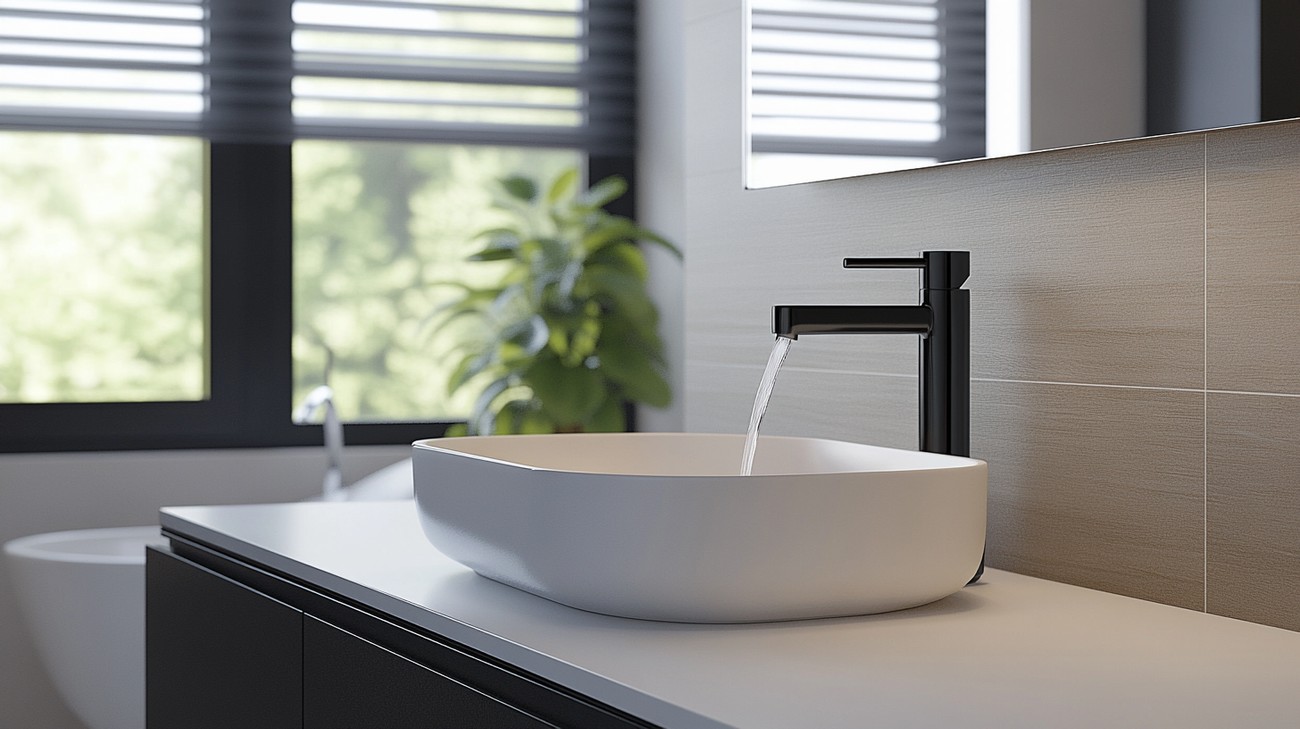
Frequently Asked Questions about No Water Pressure
Can a leak cause no water pressure?
Yes, a leak can indeed lead to no water pressure. If water is escaping from your plumbing system through a leak, it can significantly reduce your water pressure. If you suspect a leak, it is essential to get your pipes checked by a professional immediately.
How do I identify the cause of no water pressure?
Identifying the cause of no water pressure might involve checking different parts of your home's plumbing system. This could include examining the pressure in your water tank, looking for leaks, examining the condition of your pipes, or checking whether your shutoff valve is open. If you are not able to identify the cause, it is recommended that you call a professional plumber to diagnose and rectify the issue.
If I have no water pressure, does it mean I have a problem with my pipes?
Not necessarily. Having no water pressure doesn't always mean there's a problem with your pipes. It could be an indication of issues with your local water supply, closed shutoff valves, or a depressurized water tank. That said, problems such as leaks or clogs in your pipes may also lead to no water pressure.
Is it normal to occasionally have no water pressure?
No, it is not normal to frequently experience no water pressure. Consistent water pressure is important for the proper functioning of various household activities like showering, cooking, and cleaning. If you experience no water pressure often, it is crucial to investigate and rectify the problem to avoid long-term issues.
How do I fix my faucet if it has no water pressure?
If your faucet has no water pressure, first confirm that it’s not an overall water issue in your home. You could check this by testing water pressure at another faucet. If it seems to be just the faucet, probable causes are a clogged aerator or cartridge. Cleaning or replacing these parts can usually fix the issue.
Why does my shower have no water pressure?
Your shower may have no water pressure due to a variety of reasons, like a clogged showerhead, closed supply valves, or issues with your home's plumbing system. Regular cleaning of the showerhead and ensuring valves are open can help. If the issue persists, calling a professional could be the best way forward.
Can extended periods of no water use cause no water pressure?
Yes, extended periods of no water use can sometimes lead to no water pressure. In such cases, repressurizing your system or opening closed valves should usually resolve the issue. If the problem persists, it's advisable to seek professional help.
Are there preventative measures I can take to avoid experiencing no water pressure?
Yes! Regular inspection and maintenance of your home's plumbing system can greatly reduce your chances of experiencing no water pressure. This might include cleaning clogged aerators, regularly checking for leaks, ensuring valves are properly opened, and regular flushing of your water heater.

Cons of No Water Pressure
No water pressure can mean a variety of things, from very little water coming out to merely a trickle, resulting in numerous inconveniences and potential concerns. Let's explore the myriad challenges one might face due to without water pressure.
Household chores can become a nightmare
Cleaning
Without sufficient water pressure, simple activities like washing dishes, laundry, or even house cleaning, can become taxing tasks. A poor water flow can mean that you may have to leave the faucet open for longer durations to fill your sink or washing machine, wasting both time and water.
Cooking
Cooking might also become a chore as filling a pot with water could take an unreasonably long time. Also, cleaning vegetables and fruits would be less efficient without proper water pressure.
Bathing
Low water pressure can turn enjoyable showers into frustrating experiences. Whether it's a relaxing shower at the end of the day or an invigorating one to kick-start your morning - it can be a downer if the water is merely trickling down.
Potential Health Risks
Contamination
Low or no water pressure might signify a breach in the piping system, leaving it open to contaminants. This occurrence could expose your family to health risks as bacteria, and other pollutants might infiltrate the water supply.
Ineffectiveness of Certain Appliances
Water Heater
Water heaters are typically dependent on the water pressure to function correctly. If the water pressure is too low, it could lead to inadequate performance, leading to lukewarm or, at times, even cold water instead of hot.
Water Softeners and Filtration Systems
Much like water heaters, water softening systems and filtration systems also need optimal water pressure to operate efficiently. Thus, if water pressure becomes an issue, these systems may not work correctly, leading to the potential risk of hard or unfiltered water.
Increased Water Bills
Owing to the increased amount of time it takes to do everyday tasks, you might find your water bills steadily increasing over time despite the decrease in pressure.
Major Plumbing Problems
Sometimes, no water pressure might be a symptom of a larger underlying plumbing issue such as a breached, blocked, or busted pipe. Such problems can potentially lead to a significant amount of damage and would require immediate attention and repair.
Negative Impact on Property Value
It goes without saying that a house with no water pressure can be a serious detriment when trying to negotiate property value. It can be a deal breaker for potential buyers considering the various problems it presents.
Pros of No Water Pressure
Typically, having no water pressure is a significant inconvenience and rarely offers any advantages. However, to be balanced, it's worth mentioning that very high water pressure, which can potentially cause damage to your pipes and appliances, is also not desirable. A complete lack of water pressure should be seen as a clear issue, indicating a possible need for plumbing system repair or overhaul. So, in some strange way, having no water pressure can be seen as a wake-up call - prompting homeowners to address these critical —often ignored— infrastructure issues sooner rather than later.

Myths Around No Water Pressure
Let's dive right into the world of water pressure, and address some of the most common myths that often mislead people.
Myth 1: No water pressure means no water supply
A common misconception is that if you're experiencing no water pressure, it implies that you don't have a water supply. But in most cases, this isn't actually true.
Reality:
No water pressure is usually indicative of a problem with your home's plumbing system, rather than the overall water supply. Issues affecting water pressure can include clogged pipes, corrosion in the plumbing system, or issues with the pressure reducing valve.
Myth 2: High water pressure is good
Many people presume that higher water pressure equals better performance, but this is far from the reality of the situation.
Reality:
While low water pressure can be frustrating, exceedingly high water pressure can actually be harmful. High water pressure can strain your home's plumbing system and cause damage with associated costs for repair. It can also lead to increased water usage and higher water bills.
Myth 3: Health not affected by water pressure
People often think that water pressure doesn't impact health. They'd be wrong.
Reality:
Low water pressure can potentially impact your health. Lower water pressure might not completely rinse soap and shampoo off, which can lead to skin irritations. Similarly, higher water pressure can sometimes lead to accidents in the bathroom when water is unexpectedly forceful.
Myth 4: All taps have uniform water pressure
A common belief is that all taps in a house should have the same water pressure.
Reality:
Each tap in your house may have varying water pressure depending on its proximity to the main water line and its height relative to the water supply. If you find one tap has significantly lower water pressure than the others, it may indicate an issue with that specific area of your plumbing system.
Myth 5: Low water pressure is always due to issues in the plumbing
Often, people assume that a plumbing issue is the reason for their water pressure woes.
Reality:
In some cases, low water pressure can be due to peak usage times in your area (for example, early mornings and evenings when many people are using water), problems with the local water supply, or even issues with water company's pumping stations. Therefore, be sure to check whether others in your area are experiencing the same issue before calling out a plumber.
Myth 6: It's always costly to fix low water pressure
When confronted with low water pressure, the immediate assumption is that any fixes will be costly.
Reality:
However, while some causes of low water pressure—like replacing old, corroded pipes—can be quite expensive, not all solutions need to be. For example, if the issue is simply a blocked faucet or showerhead, a simple cleaning might do the trick. Even larger issues, like adjusting the pressure reducing valve, can be relatively inexpensive if handled promptly.
So, there you have it! The next time you experience a water pressure issue, it's important to remember these myths and misconceptions, so you can suitably address the problem.
Summary
Despite the many potential causes, dealing with "no water pressure" in your home can be a real headache. Some things are simple fixes, like a clogged filter or aerator, while others may need professional assistance. Just remember not to panic and take steps one at a time to identify the possible cause and solution.
Living without a sufficient water pressure can be challenging, right? But what's comforting is that while "no water pressure" in the house is tricky, it certainly isn't the end of the world! Troubleshooting can help identify if the issue is in one area or throughout your home. Once you've figured that out, you are one step closer to getting back that nice, high-pressure shower you deserve.
“No water pressure” is never a fun situation to confront, but with a little patience and a few key pieces of information, you can hopefully get to the bottom of the problem. Remember, it's always good to call in a professional plumber if you're in over your head. They handle these situations every day and can help you get your water flowing freely and quickly again. Don't let low pressure water frustrate you; solutions are often more straightforward than you might think!
About KYPD Plumbing
KYPD Plumbing is a locally-owned and operated business located in the heart of Lexington, KY. We're known for our expertise in all things plumbing, providing a full range of services from leak detection to major plumbing installations. What sets us apart is our commitment to excellent customer service, our experienced team and our efficient, hands-on approach. We handle all jobs with professionalism and attention to detail, ensuring that our customers receive the best possible solution for their plumbing needs. At KYPD Plumbing, we don't just solve plumbing problems, we build long lasting relationships with our community.
Tags: plumbing, low pressure, water issue,

